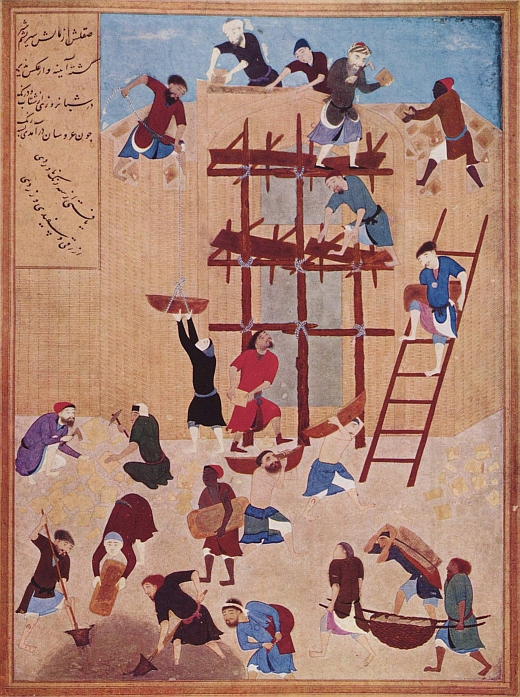
A dervish knocked at a house
to ask for a piece of dry bread,
or moist, it didn’t matter.
“This is not a bakery,” said the owner.
“Might you have a bit of gristle then?”
“Does this look like a butchershop?”
“A little flour?”
“Do you hear a grinding stone?”
“Some water?”
“This is not a well.”
Whatever the dervish asked for,
the man made some tired joke
and refused to give him anything.
Finally the dervish ran in the house,
lifted his robe, and squatted
as though to take a shit.
“Hey, hey!”
“Quiet, you sad man. A deserted place
is a fine spot to relieve oneself,
and since there’s no living thing here,
or means of living, it needs fertilizing.”
The dervish began his own list of questions and answers.
“What kind of bird are you? Not a falcon,
trained for the royal hand. Not a peacock,
painted with everyone’s eyes. Not a parrot,
that talks for sugar cubes. Not a nightingale,
that sings like someone in love.
Not a hoopoe bringing messages to Solomon,
or a stork that builds on a cliffside.
What exactly do you do?
You are no known species.
You haggle and make jokes
to keep what you own for yourself.
You have forgotten the One
who doesn’t care about ownership,
who doesn’t try to turn a profit
from every human exchange.”
—Mawl?n? Jal?l-ad-D?n Muhammad R?m? (Rumi) (?????? ???? ????? ???? ????), Masnavi-ye Manavi (????? ?????), vi, 1250-67 (ca. 1265) (Coleman Barks transl.) (This work plays off one of Rumi’s most famous sayings, namely that a dervish is an open door to the Divinity).


